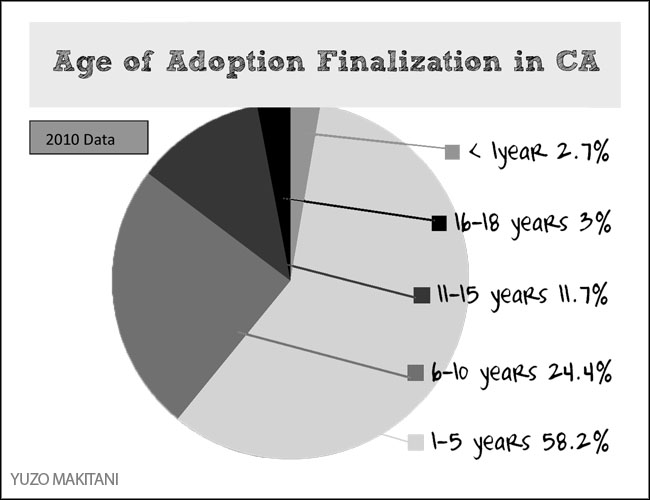
“When my parents were waiting for a baby to adopt, I came unexpectedly, so my parents didn’t have any of the baby stuff,” says junior Derrick Leong, “They pulled out a drawer when they first got me and they made a bed for me to sleep in.”
Although in California only 2.7% of adoptions are finalized before the child is a year of age, Leong was adopted when he was three months old.
Leong’s biological parents were in high school and put him up for what is called a closed adoption, in which the child does no know the identity of or have interactions with the biological parents.
Leong says, “I wish I could change the status of my closed adoption, I just want to see my biological parents sometimes. I once read a quote that said, ‘No one ever knows you unless they are your blood.’ It really stuck with me.”
Also an adoptee, English teacher Victoria Daniel says, “I did not have a desire to meet my biological parents.” Daniel had a private adoption similar to Leong’s. Daniel says, “My parents had trouble conceiving and went through some pain with previous adoption attempts… My parents named me Victoria for victory, they had gone through so much to get me.”
In contrast to a closed adoption, an open adoption refers to a circumstance in which the child knows one or both of the biological parents and typically has contact with them.
Sophomore Robert Nicholson has an open adoption and remains in contact with his biological mother. He says, “The first time I met her it was awkward. We didn’t know what to do so we played Operation in my room.”
Sophomore Jenise Williams has not lived with her biological mother since she was three years old and was adopted by her aunt at age six. Although Williams and her mother are still in contact, it has not been simple.
Williams says, “I saw my mom six months ago. My aunt didn’t want [my sisters and me] to see her. But my mom said that she really wanted to see us. She was going to come visit… come through my sister’s window. My aunt heard voices and came into the room. My aunt and mom started yelling at each other.”
Not all adopted children have the inclination to spend time with their biological parents. Children with open adoptions want their space as well.
Sophomore Thomas Goerss’s mother was determined an “unfit parent” by law. Goerss says, “My mom writes me letters, but I’ve never wanted to see her. I know what she looks like and I’ve seen her around Reno, but I have never gone up to her.”
Goerss’s biological father died when he was very young and Goerss says, “I do wish that I had the opportunity to meet my dad. I know that he loved me a lot. I can see resemblance between us in pictures of him.”
Sometimes, a child will look very little like his adopted parents. Often, adopted children share physical or behavioral similarities with biological parents.
Sophomore Sarah Mark says, “I have some similarities with my parents, but I am taller than both of them. So when we get into arguments at home I can look down on them. It’s kind of funny.”
Leong and his parents are Asian. However, says Leong, “They are [a different kind of] Asian. I’m Korean, but my mom is Japanese and my dad is Chinese.”
However, to his friends, Leong’s adopted sister looks the most physically different. Leong says, “We call her Heinz 57, after the ketchup. She’s a mixture of so many things…We aren’t really sure what her background is.”
Adoption can take place domestically, when the child is born in the same country where the parents reside, or internationally, when the child comes from a country different from that of the parents.
Senior Keaton Gee had an international adoption. She was adopted from China when she was approximately six months of age. Gee says, “I think that it was probably the one child policy in China that made my birth parents give me up.”
In 1979, China’s government introduced a policy, which in an attempt to stabilize China’s rapidly growing population, allows couples to have only one child. In many cases, children are put up for adoption.
Gee’s mother was single and chose to adopt Gee because she wanted a baby. Gee’s mother introduced the idea of Gee being adopted at a very young age, though Gee says, “I didn’t really understand it back then.”
Daniel also knew from a young age that she was adopted. She says, “[Just like] there was never a time when I couldn’t remember my own name, I have always known that I was adopted.”
Gee does not often talk about her adoption. She says, “When I tell people they might see me in a different way, it evokes pity. I am pretty open, but it depends on the person that I am telling.”
However, even with discomfort that can come with sharing the information, Gee says, “It’s not too big a deal that I’m adopted. It doesn’t reflect that I’m less of a person. But no one wants to be given up. For me accepting it is a gradual process.”





